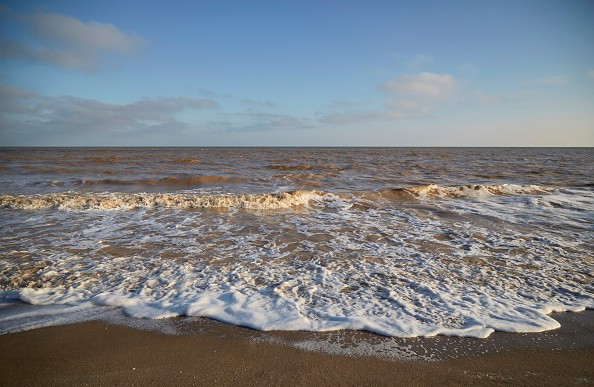A new report provides the United States with alarming forecasts as sea levels are predicted to rise in the next 30 years, more than in the last 100 years, with floods increasing in frequency, storm surges peaking, and fragile coastal infrastructure will be flooded with saltwater.
An inter-ministerial report led by the US National Oceanic and Atmospheric Administration showed that scientists are increasingly convinced that sea level along the US coast will rise another 10-12 inches by 2050.
Enormous implications of the forecast
According to the Washington Post, anthropogenic climate change, primarily caused by the burning of fossil fuels, has accelerated global sea-level rise at the fastest rate in over 3,000 years.
Reports from NOAA and other federal agencies (updated 2017 survey) predict that by 2050, sea level along the US coast will rise at the same rate as the last century.
NOAA reports that decades ago, it was usually strong storms that caused coastal floods.
Even common wind events and seasonal floods cause regular high-tide floods in coastal areas, affecting homes and businesses and overloading rainwater and sewage systems.
Floods infiltrate the coastal aquifers and coastal wetlands stress the river mouth ecosystem, as per CNN.
"Unfortunately, we are heading for a change in the flood regime," said William Sweet via the Washington Post, an oceanographer at the NOAA National Oceanic Administration and one of the country's leading scientists on rising sea levels.
"Unless more and more communities take action, there will be water in the streets."
NOAA analysis utilizes tide gauge data and satellite imagery, as well as the latest models from the latest United States Climate Change Report, to provide 10-year forecasts of sea-level rise in all states and territories of the United States.
Over the next 100 years, according to Sweet, advances in ice sheet modeling and better observational data have allowed authors to make clearer short-term forecasts than ever before.
The sea rise catastrophe

By 2050, the magnitude of the US sea level rise will depend heavily on how much the world reduces fossil fuel emissions and limits global temperature rise.
Robert Kopp, a climate scientist at Rutgers University and co-author of the report, said rising sea levels are "more and more sensitive to global warming" that the Earth is experiencing.
According to reports, if global warming exceeds pre-industrial levels at 2 degrees Celsius, there is at least a 50% chance that the global average sea level will rise by more than 1.6 feet by 2100.
With the warming of 3-5 degrees Celsius, this probability increases to 80% to 99%.
The US sea level rise will be close to or above the global average, as per CNN.
Reide Corbett, Dean of the Integrated Coastal Program at the University of East Carolina and Secretary-General of the Coastal Institute, said the NOAA report is important because it very clearly shows the true threat of climate change.
Related article: South Korea Is Sinking Due To Climate Change and Sea Level Rise
© 2025 NatureWorldNews.com All rights reserved. Do not reproduce without permission.





